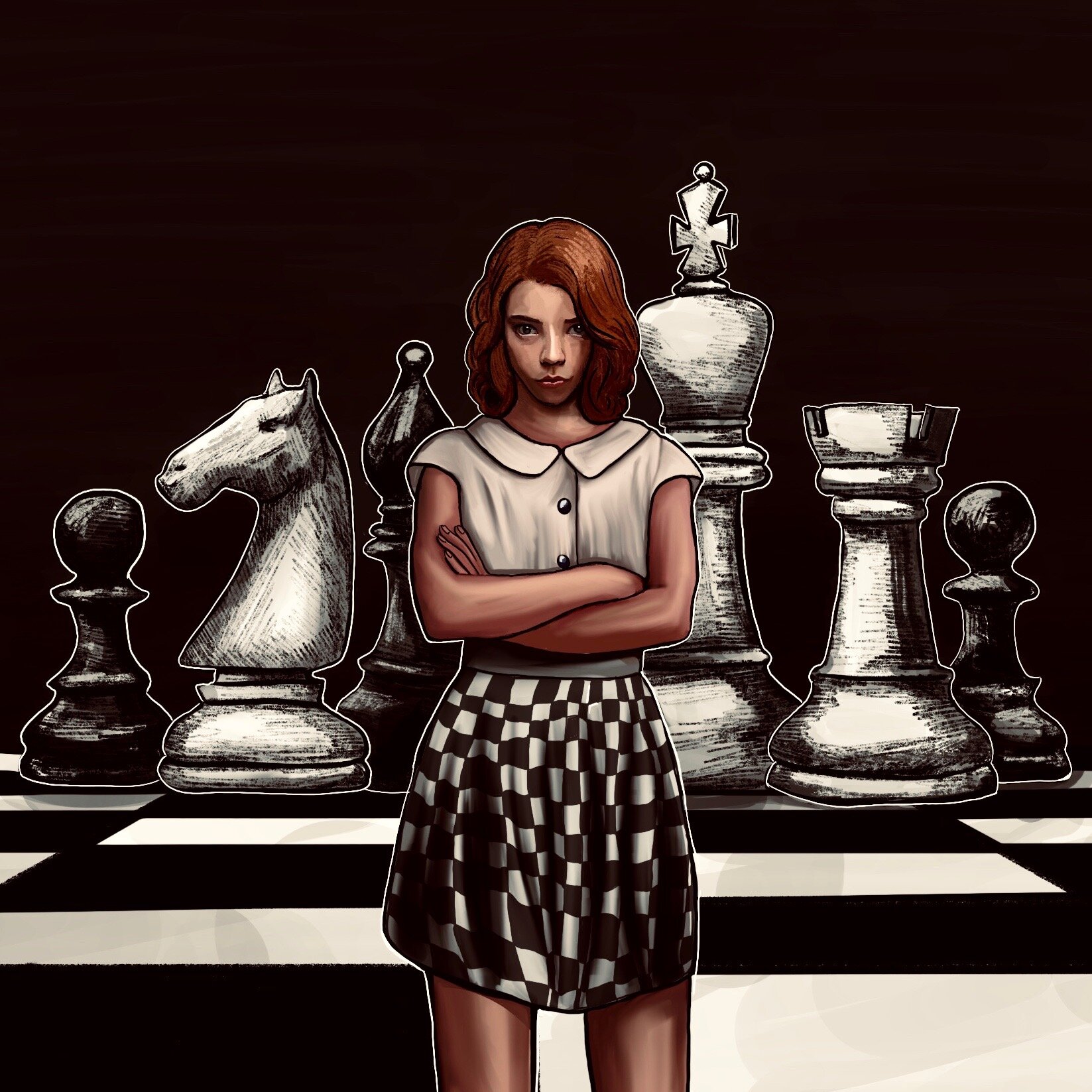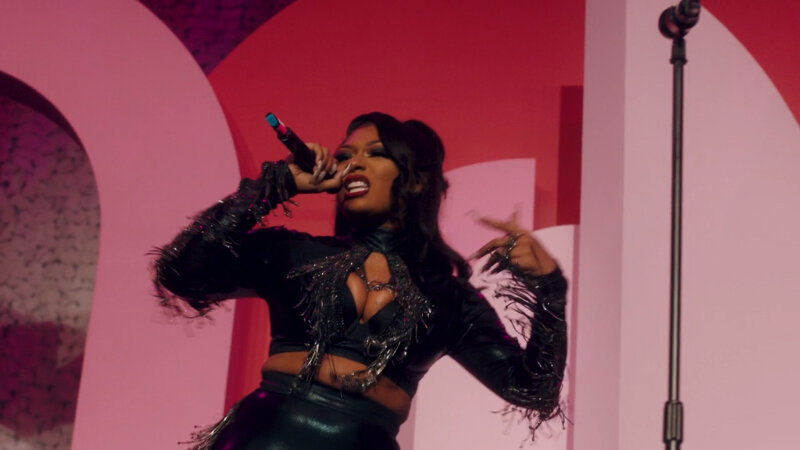Graphic by Trinity Kendrick ‘21
By Sabryna Coppola ’22
Arts & Entertainment Editor
Content warning: This article mentions homophobia and emotional abuse.
The holiday season traditionally involves going home to see family, and that presents a potentially harrowing experience for many LGBTQ+ people.
On Nov. 25, Hulu released their original film “Happiest Season.” Directed by Clea DuVall (famous for her role in “But I’m a Cheerleader”), the film follows Harper (Mackenzie Davis) and her girlfriend Abby (Kristen Stewart) as they visit Harper’s home for Christmas. Harper admits on the way that she lied about being out to her conservative (read: homophobic) family, and since her father is a politician running for reelection, she wants to keep their relationship a secret until after the holiday passes.
The film opens with all the usual antics we can expect from this popular trope in LGBTQ+ movies, including lots of misunderstandings and innuendos. But as the movie progresses, Abby and Harper’s relationship becomes more strained.
Since Harper’s family doesn’t know about her identity, they keep trying to set her up with her ex-boyfriend. Left alone in an unfamiliar place, Abby befriends Harper’s ex-girlfriend, Riley (excellently played by Aubrey Plaza). Harper’s tense relationship with her parents, her extremely competitive older sister and her hiding of Abby all come together to create a ticking time bomb.
The movie promises a star-studded cast, including Stewart, Plaza, Alison Brie and Dan Levy. However, it is only Stewart and Plaza’s talents that are fully utilized, as only their characters are fully developed. The rest seem to fall into flat stereotypes.
Throughout the movie, Harper ignores Abby, who has admitted how hard it is for her to celebrate Christmas after the passing of her parents, and repeatedly convinces her to stay despite her discomfort. Levy plays Abby’s friend, John, who occasionally advises Abby over the phone to remove herself from the situation, eerily reminiscent of Jordan Peele’s horror film “Get Out.” However, at the end of the movie, he tells Abby that just because Harper is afraid to be open about her sexuality doesn’t mean that she loves Abby any less. Reminding Abby how scary it can be to come out to one’s family, he convinces her that Harper’s manipulative behavior is justified.
Without revealing too much, I will say that I was immensely disappointed in this movie for many reasons. Following in the footsteps of almost every rom-com relationship, Abby and Harper are completely dysfunctional and, frankly, toxic. The cast is also mostly white, and the three characters of color lack dimension. They seem to be used as diversity tokens for the election of Harper’s father, which is wildly problematic and wholly unaddressed. Two of them frame Abby for stealing something from a mall, adding an unnecessary and racist plot point. Harper spends the entire movie pandering to her right-wing upbringing, hiding the parts of her that will tarnish her father’s reputation and, in the process, actively hurting Riley and Abby.
This portrayal of LGBTQ+ romance is not the representation I wanted to see from DuVall, a lesbian icon. The best-case scenario would be a lesbian rom-com that wasn’t about their sexual orientation. But this toxic couple undermines that possibility. Instead, preying on the terrifying feeling of coming out enables an unhealthy relationship in which Abby is emotionally manipulated into letting herself be mistreated by Harper. I’m not asking for the perfect movie, but it would have been nice for the first mainstream lesbian rom-com to promote more meaningful representation.
The movie has had some mixed reviews. NPR called it “funny,” “charming” and “warm” and lauded the cast for their performances. However, lesbians on social media have expressed disappointment in the couple, pointing out how Harper’s general mistreatment of Abby is thinly glossed over by appealing to the fear of coming out. Like any rom-com, the problems are easily solved and the ending is perfectly happy — every problem is neatly wrapped up and put away. Despite how much I wanted to like this movie, I think it’s something that will land differently with everyone who watches it. Knowing how hard it is to come out to family shines a sympathetic light on Harper, but for me, it wasn’t enough to excuse her actions.
The movie is still worth watching, but don’t expect too much. There are some genuinely funny parts and a cozy, festive atmosphere to the film. Stewart and Plaza, both usually typecast as cold and sarcastic, give wonderful performances. It does show a nuanced relationship, which is important for “representational” movies, but marketing toxic as romantic just doesn’t sit right with me.
To anyone struggling with difficult family dynamics over the holidays, remember that you are worthy and deserving of self-preservation. It can be a tough time for a lot of us, but remember to take care of yourselves. If you find yourself in Abby’s position, pack your bags and put yourself first.













